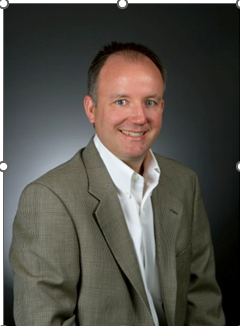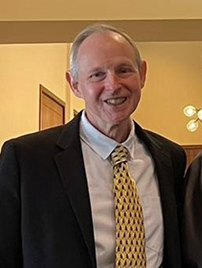BCEIA2023学术报告会大会报告&后疫情大健康高峰论坛-报告人介绍
BCEIA2023学术报告会大会报告 邀约通道二维码:

BCEIA2023学术报告会大会报告&后疫情大健康高峰论坛-报告人介绍
语言:英文
时间:2023年9月6日
地点:学术会议区W201
邀请全球知名科学家介绍DNA存储、纳米毒理学等前沿科学技术,分享球差电镜、微型化双光子显微镜等高端仪器的研究进展,同时就质谱法和核磁共振法等研究生物大分子结构及功能、新型分离介质制备及蛋白药物、疫苗纯化等最新应用进行探讨和展望。
Paul Westerhoff
教授, 美国亚利桑那州立大学

报告题
目:Analytical Strategies to Assess PFAS Removal and Lifecycle Fate during Adsorption or Transformative Water Treatment Processes
报告摘要
Per- and polyfluoroalkyl substances (PFAS) occur in ground and surface water sources across the globe, and proposed drinking water regulations are driving PFAS treatment technology development and implementation. This presentation will first address current treatment technologies, which utilize adsorption (liquid to solid phase transformation), membranes (liquid to liquid separations) or transformative (oxidation or reduction) processes. Examples will be provided how treatment process efficiencies for “real waters” and how the processes challenge analytical methods. Second, the presentation addresses end-of-life for residuals (e.g., activated carbon) that contains PFAS, which will require incineration. Tracking PFAS during incineration requires unique analytical approaches to track fluorinated aqueous, gaseous and solid-phase species. Overall, the presentation will demonstrate how to match PFAS analytical strategies to PFAS drinking water treatment processes.
个人简介
Dr. Paul Westerhoff is a Regents Professor and Fulton Chair of Environmental Engineering in the School of Sustainable Engineering and the Built Environment at Arizona State University. Since joining ASU he has held various administrative positions. After serving as the Civil and Environmental Engineering Department Chair he was the Founding Director for the School of Sustainable Engineering and the Built Environment, and served later as Associate & Vice Dean of Research in Engineering and ASU Vice Provost for Academic Programming. Dr. Westerhoff is the Deputy Director of a NSF ERC for Nanotechnology Enabled Water Treatment and co-Deputy Director of the NSF STC Science and Technologies for Phosphorus Sustainability Center. His research group addresses questions related to What pollutants exist in the environment? If they occur, do they matter? If they occur and matter, what do we do to address them? with a focus on pollutants in natural and engineered water systems. He has over 400 journal publications (H-index>100) and multiple patents. He is the recipient of the 2020 A.P. Black award, 2019 NWRI Clarke Prize, 2015 ASU Outstanding Doctoral Mentor, 2013 ARCADIS/AEESP Frontier in Research Award, and 2006 Paul L. Busch Award. He was elected to the National Academy of Engineering in 2023.
Paul Breitenbecher
CEO, Breiten Associates LLC

报告题目:False positive, negative, and unexpected Drug Testing Results in the Urine Toxicology Laboratory |药物测试:尿液毒理学实验室使用筛选法(免疫测定法)和确认法(MS)
报告摘要
In 1995 I co-authored a short article entitled “False-positive Immunoassay Results for Urine Benzodiazepine in Patients Receiving Oxaprozin (Daypro)”. This was published when rapid urine drug screening test methods were first becoming available. The laboratory community was starting to realize that not all assays can be tested for all of the thousands of drugs, substances or endogenous compounds that may potentially cause result errors.
There are false positive, false negative and unexpected patient urine drug test results that occur in the Urine Toxicology laboratory.
How does one research these results and assist the clinician in helping to assess these results to treat their patient?
Unexpected urine drug test results can occur during any phase of the testing process; however, the most common usual results occur during the pre- analytical or patient collection phase. During this phase patients can provide “fake” urine, take substances that can affect the testing method, or they can adulterate/dilute their urine specimen.
Depending on the screening test method used, the test method can be impacted by a variety of substances that can produce either false negative, false positive or usual results. Screening results can also be different than the confirmation results making interpretation of patient results even more confusing.
During this presentation we will review a basic screening test method and confirmation method. And discuss some of these unexpected urine drug test results.
个人简介
Paul Breitenbecher在罗得岛大学、康涅狄格大学、杜肯大学等高校进修了研究生课程,曾在哈佛先锋医学中心、诺华生物医学研究院、病理实验室公司(Inform Diagnostics,原名Miraca Life Sciences Inc.)等知名医学机构和企业的实验室从事管理工作。现任Breiten Associates LLC公司的首席执行官,为临床实验室和CRO领域的科研人员提供采购、咨询等方面的技术支持。
更多报告人介绍详见附件 BCEIA2023学术报告会大会报告&后疫情大健康高峰论坛-报告人介绍








